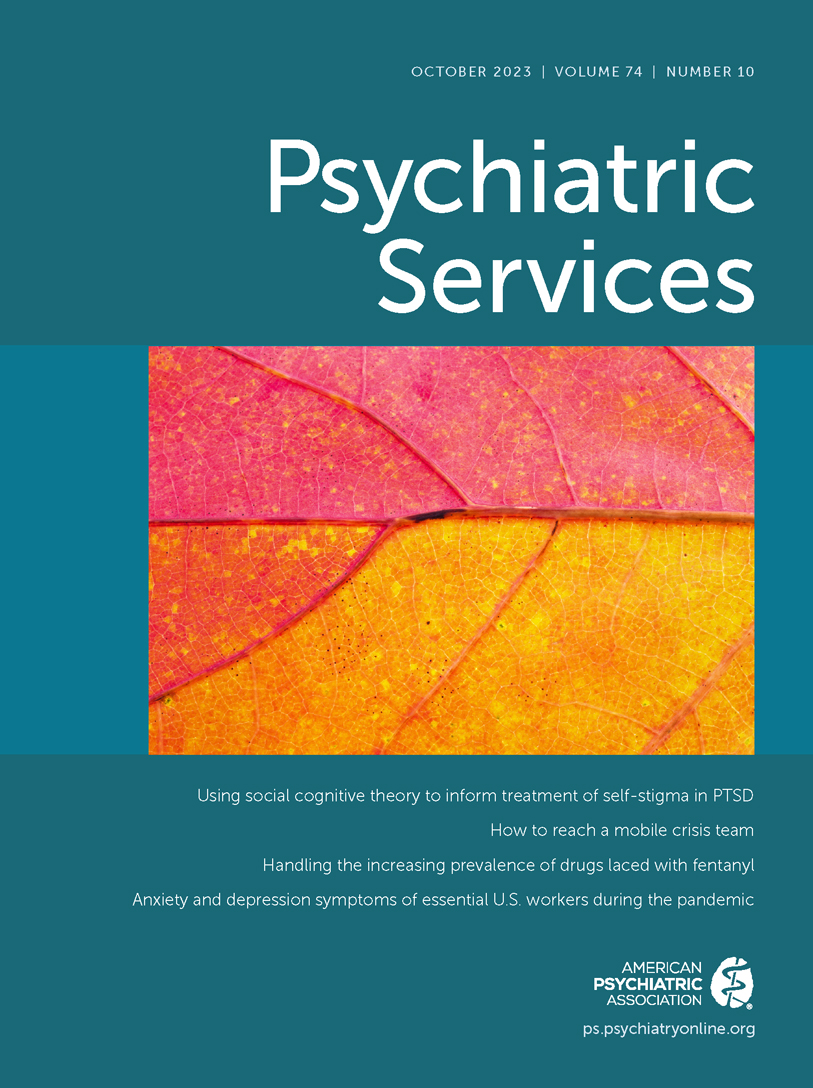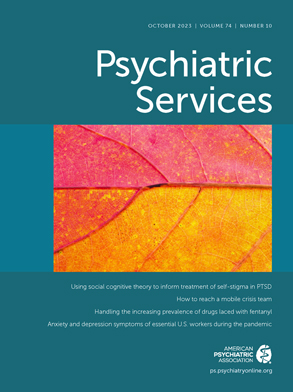The scorching summer sun beat on my head as I sat on a wooden bench inside a gazebo on the grounds of Saint Vincent’s Hospital Westchester in Harrison, New York. I twiddled an unfiltered Lucky Strike between my nicotine-stained fingers before taking a draw off the cigarette and breathed a long plume of smoke out my nostrils like a dragon.
As a male passerby gazed longingly at the Lucky, I avoided eye contact for fear he would ask for a drag or, worse yet, a cigarette of his own. The guilt of selfishness coursed through me—but not strong enough for me to call to the man, who had the lost look of mental torment I recognized in myself on the rare occasions I accidentally caught my reflection in a mirror.
My mom’s leg brushed against my own as she shifted on her side of the bench. She spoke in a soft tone. There were no tears or theatrics, just the exhausted plea of a tired-out mother who has tried everything to save her beleaguered son and has run out of ideas.
See, this wasn’t my first visit to the mental ward. It was my 18th trip to limbo, and half of those trips had occurred during a 9-year stretch of sobriety.
I thought I had tried everything to avoid the psychotic breaks that landed me in these places. I had shunned drugs and alcohol. I had taken my medications religiously or not at all (with and without my psychiatrist’s knowledge and assistance). I had poured my heart out to therapists, friends, sponsors, and even strangers, who probably heard more than they wanted to hear.
Yet, here I was again—in the mental ward. Paralyzed by spiritual fear. Engaged in a ceaseless argument within the confines of my own mind.
Who was I? Was I evil? Was I chosen for a special task? Would I blow it?
These were questions many of my fellow “inmates” in the ward shared, but, for some reason, that knowledge gave me no solace.
All I looked forward to were the brief few minutes a day when I could go outside with a visitor to enjoy a roast beef sandwich or a cigarette they would smuggle in for me.
Back to square one.
“I can’t take these hospitalizations anymore, Todd,” my mom said flatly.
I caught the tone. This was no bluff; it was a statement of fact. My mom had survived breast cancer a few years back. She needed a break, and I wasn’t helping. This was going to kill her.
“Okay,” I replied. “I’ll never go back.”
That conversation took place in 2009. I’m still sober. I enjoy a full life. I have lots of friends, a career I enjoy, a pet I care for, and varied interests I pursue. Moreover, I have not found myself detained in a mental ward since I was released a few days after the vow I swore to my mom that day.
What changed? How do I use my successes with mental health recovery to help those I serve in my role as a peer specialist?
The most vital change–actually, pretty much the only one—was the way I oriented myself to what the professionals working on my case called “delusions.”
I had lived with these delusions my entire life. One of my first memories was a one-on-one talk with my grandfather on the deck of his beach house when I was about 3 years old. My grandfather, Henry Wittenberg, was a hero of mine. He was an Olympic champion wrestler, and we shared a love of animals, art, and life in general. He was someone I listened to.
On this particular day, he spoke to me about religion. This was abnormal. We celebrated Christmas because most Americans believed a person named Jesus Christ was the Messiah, the savior of the world. “However,” my grandfather continued, “we’re Jews, most of whom believe the Messiah has yet to come.”
“Can I be the Messiah?” I remember asking.
My grandfather chuckled and told me to shoot for the stars.
For most people, such an implied possibility would fade out or quickly be rejected. This was not the case for me. I had signed on the dotted line. I was going to be the Messiah or die trying. I began each day with that intention for a long time.
This singular focus wasn’t all bad. As a child, my mission was a comfort. I had a purpose, support, material prosperity—anything a kid can hope to enjoy. I was determined, optimistic, and content with my role as someone “exceptional.”
Centering my life on this objective, however, probably went how most people would expect. The confidence of my youth did not last. I became horribly terrified and began to experience schizophrenia.
The best description I can come up with regarding schizophrenia is multiple equally powerful belief systems centered on an issue or issues dear to the holder that fracture the mind, creating strongholds therein that disallow the free and healthy movement of thought.
This affliction, which I could no longer hide by my early 20s, contributed to hallucinations, ungrounded assumptions, and impulsive and dangerous actions. A protracted bout of psychosis and subsequent visits to the mental ward followed. My life ground to a halt for the next 15 years.
I held strange beliefs that, I suspected, everyone in my life found to be highly problematic. I thought I knew how they felt. If these ideas were not discarded, ripped up root and branch, and cast into the fire of forgetfulness, I would never get better.
So, I tried. I decided to force myself into a new worldview wherein I considered myself to be just like everyone else. The dreams of my youth became anathema, a terrible lie. I tried to attribute my odd experiences to confusion.
By 2009, when the conversation under the gazebo transpired, I was unemployable, twice the weight I was during my first hospitalization, and void of any hope for the future.
I didn’t have much to grasp onto besides the promise I had made to my mom. But I didn’t want to let her down. So, I made one of the best decisions of my life.
I decided not to fight the schizophrenic battle anymore. I chose a single belief system, one that was uplifting and filled with hope and peace. I then put all my marbles into that basket.
No longer would I make it necessary to explain my views to anyone in order to feel justified. I didn’t need to try to make people think like me to vicariously enjoy their “enlightenment.” When asked a specific question, I could share or not share my opinion. My beliefs became my business, my thoughts, my special place.
This process was arduous. I didn’t spin around in an impenetrable forest of suffering to find the warm sunlight of the spirit.
My recovery was slow. Some hours were great, and I felt periods of peace, but I also looked back often, tripping into pitfalls of sadness and alarm. At times, my mood vacillated wildly. All this turmoil became a blessing, however, because my recovery roots grew deep, particularly on days of struggle.
I learned ways to manage my ailment. One day, as I walked down a busy sidewalk with a couple of friends, I began to freefall into the mental mire. My friends saw my mood shift as I pointed sadly to a shard of glass.
“Maybe pick it up,” one friend suggested.
After I picked the glass up and tossed it in the garbage, a calm sense of confidence washed over me. I hadn’t “saved the world,” but, in a small way, I had been part of the solution. I wasn’t the world’s critic anymore. I was part of the cast.
Rather quickly, many surprising turns happened. The people I thought cared so much about the theories I wrangled with turned out to not be concerned with them at all. They just wanted me to be safe and happy. This was true of my family, my friends, my psychiatrist—almost everybody important to me.
I was astounded. I was also incredibly relieved. From that one pivot more than 13 years ago, I have built a meaningful life. I had thought that achievement to be next to impossible.
When engaging with the people I serve (whom I call participants), I use the same strategy. I don’t try to make my participants believe or disbelieve anything, as long as they and others remain safe.
If a participant tells me the sun is a low-hanging light bulb hovering among the clouds, I might ask them why they believe that. I will ascertain any threat to safety and share the information with my team, but I do not believe it is my role to be a belief changer.
Although it is possible that I could dissuade my participants from their delusions with a barrage of counterarguments, what benefit to the important person in the room—the participant—would that create? No benefit at all, I think. Instead of being a special companion on the participant’s mental health journey, I would become the captain. That makes no sense to me.
What I do is encourage participants to actively seek truth. As a peer specialist, I have the privilege of being invited into many of my participants’ special places. But I am only given a glimpse, even on the best of days. Not knowing everything isn’t tragic; it’s all right.
Human beings are complex creatures, and psychosis is complicated. I wish to be a guide for the people I serve. What has worked in my recovery and has benefited most of the participants I serve is a combination of kindness, openness, and space.
If participants share thoughts with me that others might find troubling or objectionable, I don’t impinge on their right to think freely.
I bring a lamp to the scene, not a fire hose.

